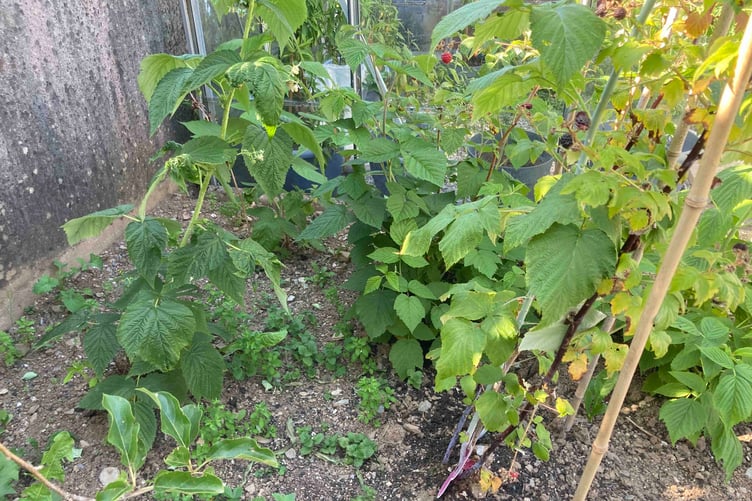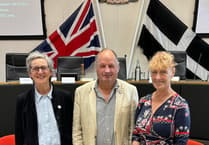HAVE you heard of rewilding? You may have heard about the beaver reintroductions at the Lost Gardens of Heligan. Well, beavers were once common throughout most of the UK and we had mostly eradicated them for their fur in years past and now they are gradually being introduced in some places.
You may say, what has this got to do with gardening? I would say it has a lot of relevance. Not because we should be reintroducing beavers to our gardens, but that we have a responsibility to support wildlife and biodiversity in our own green patches.
The UK is said to be one of the most nature-depleted countries in the world. You must have noticed the reduction in numbers of insects, butterflies and many birds in our gardens in recent years.
Everything is linked. Creatures feed off one another and, if insects are in decline, then obviously the birds and small mammals that feed on them will also in turn be suffering.
Climate change adds another dimension. If we unexpectedly have a warm period, birds in our gardens may start thinking it is time to nest and raise a brood of chicks. If the weather is not sustained and there aren’t the insects available, then the brood is less likely to survive. Our weather patterns have become much less predictable and this might be strange for us but it can be disastrous for wildlife.
So how do we rewild our gardens? By thinking about nature and wildlife in everything we do. That might be about leaving areas of longer grass to support small mammals and insects or growing a few wildflowers to help pollinating insects.
If we plan to grow different kinds of flowers throughout the year, this will, for example, support bees coming out to forage in very early spring when there might not normally be many flowers about.
Insects are not just a nice thing to have around, but we need them to pollinate the fruit and vegetables that we plan to eat. So, actually, looking after nature is in our self-interest.

Water is something that can be really helpful in the garden. Even a small pond soon attracts a range of wildlife from aquatic insects and beetles to frogs, newts, birds and hedgehogs.
There really is lots to be thinking about in the garden in this context. Being less tidy, leaving plant stems for hibernating creatures through the winter, building log piles and starting a compost heap will all support wildlife. This is also about recycling, using what we have in the garden, rather than disposing of unwanted material.
Many of these projects will also enrich your soil (through the resulting organic matter produced) and support a healthier more balanced garden less susceptible to pests and diseases.
Our gardens, put together across the UK, represent a huge area larger than the size of all our national parks. Anything we can do to support our wildlife really does make a difference. We all have a responsibility to do what we can.





Comments
This article has no comments yet. Be the first to leave a comment.